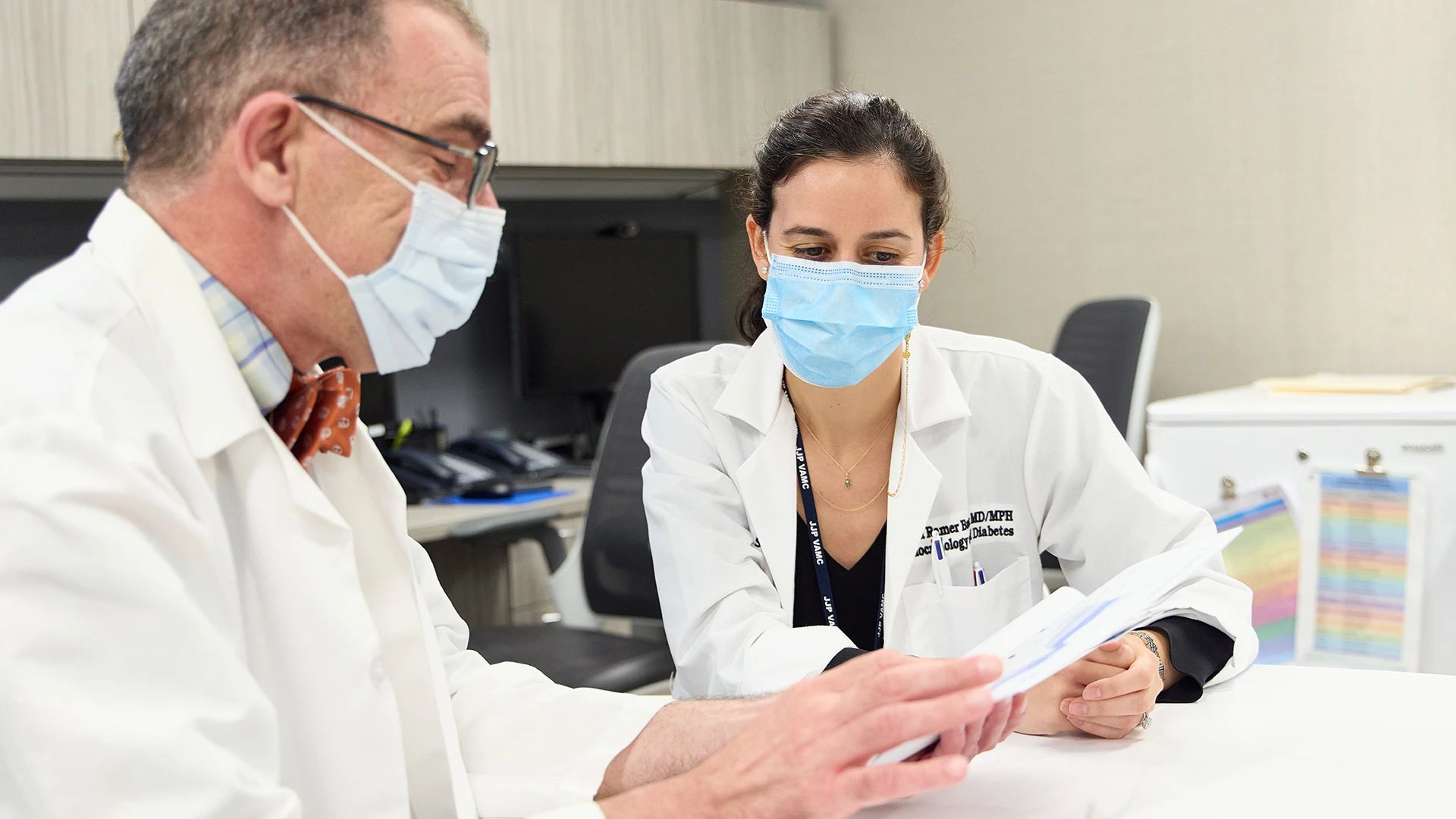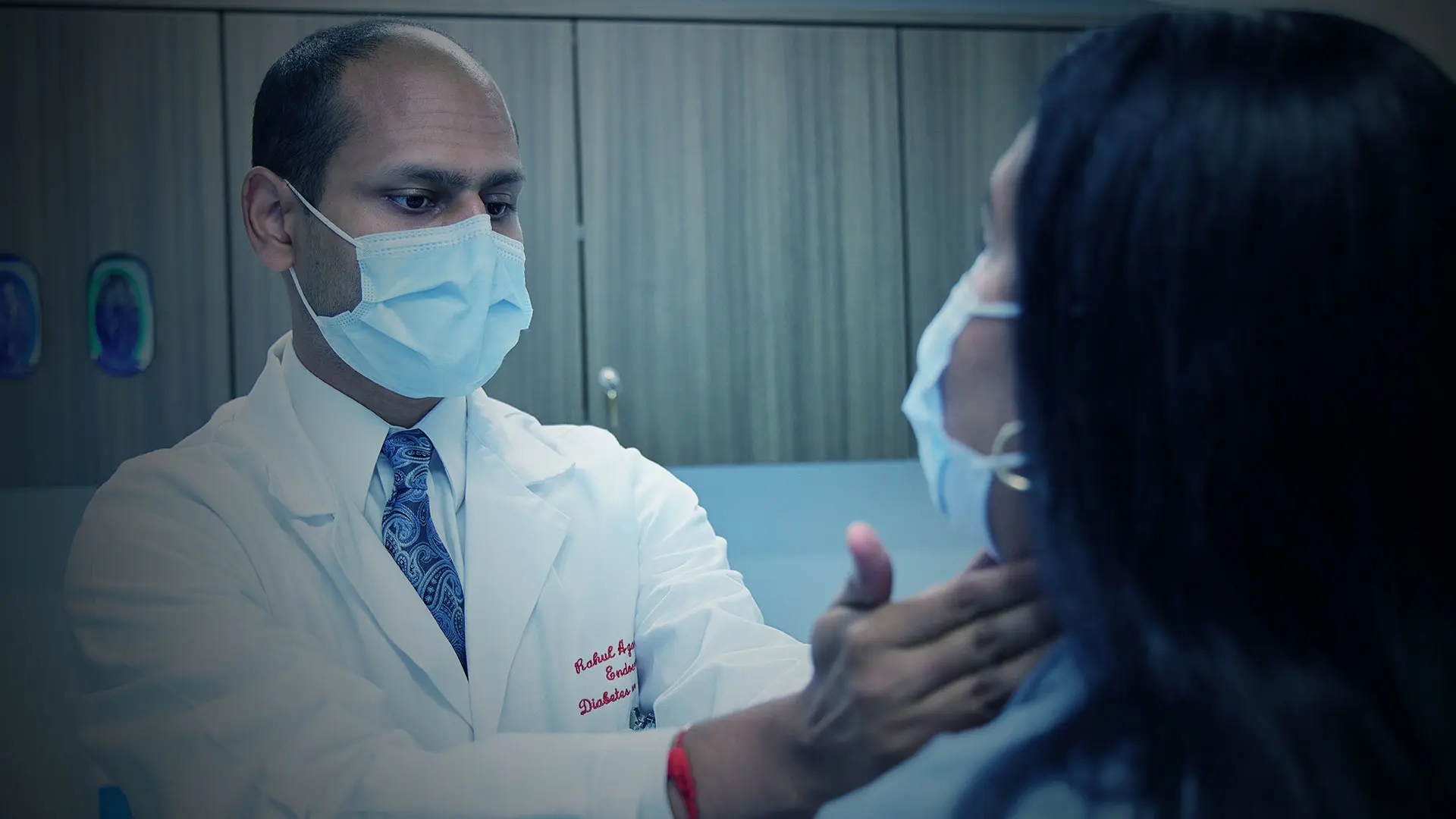A new ambulatory practice, Medicine Multispecialty at Mount Sinai Morningside, was launched in February 2021, dedicated to providing integrated, team-based care that meets the complex needs of patients, especially those with chronic disease.
The practice offers a wide range of specialty care for disease management and several new
programs where specialists collaborate on patient care. Endocrinology, Diabetes and Bone
Disease/Weight Management is the largest subspecialty at the practice, which also includes
Allergy and Immunology, Infectious Diseases, Gastroenterology, Pulmonology, Nephrology, and Rheumatology.
“One advantage of being an endocrinologist in such a multidisciplinary space is you are
reducing some of the care-navigation issues for patients instead of bouncing them from site to site to see specialists,” says Rahul Agarwal, MD, Medical Director of the practice, and Assistant Professor of Medicine (Endocrinology, Diabetes and Bone Disease), Icahn School of Medicine at Mount Sinai.
“There are specialties for every part of the body, but patients don't function that way,” says another physician in the practice, Ilana Ramer Bass, MD, Assistant Professor of Medicine
(Endocrinology, Diabetes and Bone Disease), Icahn Mount Sinai. “So you need to be able to see a patient as a whole person. I treat patients with diabetes, but as we all know, diabetes doesn't only affect patients’ blood glucose levels, it can also affect their nerves and eyes and kidneys. And being able to have all the different specialties that a patient might need to see under the same roof is really important for the patient to get consistent care."
The practice is located in a suite of offices renovated with multispecialty care in mind, including a collaboration room, where physicians in a variety of specialties can meet between sessions, do paperwork, and share their expertise. Dr. Agarwal says the level of integration found at the practice is unusual in academic medicine. It was an initiative created and strongly supported by Samuel L. Seward, Jr., MD, Chair of the Department of Medicine at Mount Sinai Morningside and Mount Sinai West, and Arthur A. Gianelli, FACHE, President, Mount Sinai Morningside.
The Medicine Multispecialty practice offers four signature programs, including Travel Medicine, which works with patients on vaccination and other health issues associated with travel; Venous Thromboembolism (VTE), in which Pulmonology works closely with colleagues from Cardiology and Cardiothoracic Surgery on managing VTE; and Lung Nodule, which serves as a referral clinic for patients who have a lung nodule detected on CT scans either incidentally or as part of a screening program.

Ilana Ramer Bass, MD, right, with diabetes educator Francisco Diaz, MSN, NP.
The fourth program is the Fracture Reduction Clinic, a joint effort of Endocrinology and Rheumatology to screen for osteoporosis in individuals over the age of 50 to reduce non-traumatic fractures.
“This particular clinic creates a pathway for patients who are admitted to the hospital with a hip fracture and are transitioned to outpatient care to see one of us, to assess for osteoporosis,” Dr. Agarwal says. “Many hip fracture patients have underlying osteoporosis, but this is not always screened for during the management of the fracture, which could predispose them to another fracture in the future.”
Another opportunity for collaboration between Endocrinology and Pulmonology is the treatment of sleep apnea. Most patients who are seen for that disorder are also obese, Dr. Agarwal says. “This creates a pathway for us to see patients in our obesity practice, to get their health fine-tuned with either medication, nutritional or lifestyle guidance, or possibly referring them to bariatric surgery.”
Endocrinologists in the practice also work closely with Nephrology in the management of kidney disease. “We want to make sure we are providing options that will reduce the progression of diabetic kidney disease, or prevent it altogether.” Dr. Agarwal says. Mount Sinai is recruiting patients with type 2 diabetes and chronic kidney disease, and assessing the impact of integrating a novel risk-stratifying tool in the management and outcomes of patients. That study is led by David Lam, MD, Assistant Professor of Medicine (Endocrinology, Diabetes and Bone Disease), and Medical Director of the Mount Sinai Health System’s Clinical Diabetes Institute.
“Endocrinology is at the forefront among other medical specialties in being an integrated division,” says Peter Goulden, MD, Chief of Endocrinology, Diabetes and Bone Disease at Mount Sinai Morningside and Mount Sinai West. “There is a seamless, team-based approach, and we are really being forward-thinking in how we address structural issues and care delivery.”
Rahul Agarwal, MD, is Medical Director of Medicine Multispecialty at Mount Sinai Morningside, which was launched in 2021.
